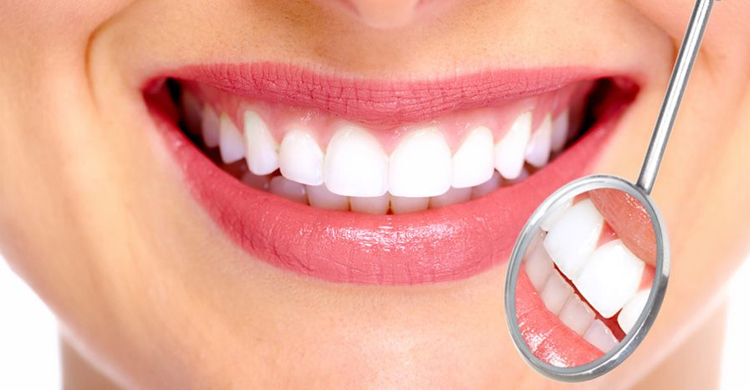
Blog Posts
RECENT BLOG POST


04 Aug 2021


10 Aug 2021


10 Aug 2021


By Dr. Aastha Chandra

08 Jul 2022
SIGNS YOU NEED TO VISIT A DENTIST
Young children, a demanding job, a friend in need ― many things can cause preventive health care to fall by the wayside. Until a nagging symptom reminds you it’s been a while since your last checkup.
It’s tempting to put off seemingly minor dental issues until your schedule lightens up. But the warning signs below shouldn’t be taken lightly. By catching problems early on, you’ll save yourself precious time and money.
1. Bleeding Or Receding Gums:
Blood on your toothbrush or in the sink isn’t normal. It could mean you’re developing gum disease, which is medically known as gingivitis. When untreated, gum disease can lead to bone loss around the teeth and eventually tooth loss. Other signs include red, swollen or tender gums, and discharge between the teeth and gums. Nevertheless, gingivitis is reversible and can be treated with the help of dental scaling. Dental scaling involves the use of an ultrasonic machine with blunt metal tips and water irrigation.
Receding gums can be a normal part of the ageing process, but recession can also be a sign of gum disease. Regardless of the cause, receding gums can expose the delicate roots of teeth, increasing the risk of decay, infection, pain and tooth loss. When it’s caught early, treatment can stop or even reverse the process.
2. Dry Mouth:
A healthy mouth is well lubricated by saliva, which washes away food particles and neutralizes the acids produced by plaque. If your mouth feels unusually dry, it could be a sign of illness. Your dentist can determine what’s causing your dry mouth and suggest ways to restore moisture and protect your teeth.
Dry mouth, or ‘xerostomia’, affects about 10% of people, and it can make it difficult to speak, eat, and swallow. It can also lead to tooth decay, infections, bad breath, and more. While treatments can vary depending on the patient, your dentist can absolutely provide you relief of this illness.
3. Injury Or Trauma To The Teeth:
If you have sustained an injury on your mouth, it is advisable to visit your dentist for a check-up. Many people ignore minor injuries to the mouth, especially if there is no visible bruise or mark. It is important for your teeth to be examined by the dentist to ensure that there is no major impact from the injury.
4. Loose Or Shifting Teeth:
Adult teeth should last a lifetime. If you notice slight movement or widening gaps, take it seriously. It could be a sign of infection or bone loss. Also look out for changes in the way your teeth fit together when you bite, or changes in the fit of partial dentures.
While most people believe that maligned and crooked teeth are just aesthetically unappealing, they can also cause difficulty in speaking and chewing, and increase the risk of tooth decay and gum infections. Braces (orthodontic treatment) are painless and can help in making the teeth functionally aligned.
5. Frequent Mouth Ulcers Or Sores:
Most people experience mouth ulcers from time to time. However, if you have ulcers in the mouth that are not healing and seem to be spreading, then this is a sign that you should see your dentist. You will receive the correct treatment to clear away the sores permanently.
Common canker sores will clear up on their own in one to two weeks. But other oral lesions need to be treated. A fungal infection called ‘thrush’ or ‘candidiasis’ can show up as white sores on the tongue, inner cheek, tonsils or roof of your mouth. People with diabetes are more prone to thrush, which thrives on high sugar levels in saliva. Medicine can treat thrush.
6. Tooth Pain Or Sensitivity:
Okay, this one’s obvious. But it shouldn’t be ignored. Pain and sensitivity can have many causes – a cavity, abscess, broken tooth, damaged filling or grinding your teeth, vigorous brushing or the influx of acid in the mouth. Severe tooth pain can actually paralyze your normal work schedule. If you experience a continuous toothache or hypersensitivity for several days without much relief, then this is a sign that you need to book an appointment with your dentist. In most cases, tooth cavities are the main cause of toothaches.
7. You’re Embarrassed About Your Smile:
Due to the yellow hue of dentin (the second layer of the teeth), the natural colour of teeth appears to be yellowish-white. However, this colour darkens on consuming some foods and beverages such as curries with turmeric, tea, and coffee. Furthermore, chain-smoking and improper oral hygiene can result in staining of the teeth, and promote the development of plaque and calculus. While the stains, plaque and calculus can be removed by scaling, whitening of teeth can be done with the help of a dental procedure called ‘bleaching’.
You don’t have to live with a smile that you’re not proud of. Whether you’re hoping to fix tough stains, a crooked bite, malformed teeth, or more, there are cosmetic and restorative services to help!
8. Foul Odour From Mouth:
Bad breath, medically called ‘halitosis’, is a common problem seen in people suffering from gingivitis, periodontitis, dry mouth, and mouth breathing. While gum infections can be treated with help of scaling, people with dry mouths are prescribed artificial saliva and lozenges to keep the mouth moist. Those with a habit of mouth breathing are given a removable oral shield, which covers the mouth and allows the person to breathe through the nose.
Many people do not associate bad breath with a dental problem, they assume that the main cause is poor oral hygiene. However, if you have a consistent problem of bad breath, this is an indication that there could be an underlying issue. One medical reason for bad breath is an infection. Your dentist will be able to trace the root of the problem and recommend the appropriate treatment.
9. Cavities:
As soon as we eat food, the bacteria present in the mouth start forming a biofilm called ‘plaque’ which decays the enamel resulting in cavities. Cavities cannot be treated at home, and require dental fillings. If left untreated, the damage can extend to the pulp (nerve-containing part of the tooth) and result in the inflammation of the pulp , abscess around the root and infection of the bone.
10. Swelling In And Around the Oral Cavity :
An untreated cavity allows the bacteria to seep into the root canals, spreading the infection to the root, bone and surrounding tissues. This infection results in the collection of pus under the roots of the teeth, which can also spread to the fascial spaces around the mouth and face causing excessive swelling. The infected tooth is treated with the help of root canal treatment. Doctors may also drain the pus and prescribe antibiotics to reduce the swelling.
11. Pregnancy:
Taking care of your health is of the upmost importance during pregnancy, so it is no surprise that this includes your oral health as well! Pregnancy can often have a big impact on your teeth and gums. For example, morning sickness can lead to erosion of the dental enamel. Dry mouth is also more common during pregnancy. You’ll also want to be certain that you don’t have periodontal issues, as gum disease can cause premature birth.
12. Jaw Pain Or Popping When You First Wake Up Or Whilst Chewing:
You do not have to suffer through TMJ (temporomandibular joint) problems. Your dentist can help you to uncover the root cause of the issue — such as misaligned teeth, teeth grinding, injury, and more — and begin treatment!
It is highly recommended that you see your dentist at least twice a year in order to prevent decay, gingivitis, and other oral health issues. We’ll also perform a professional cleaning to remove tartar build-up and keep your mouth in good health!

